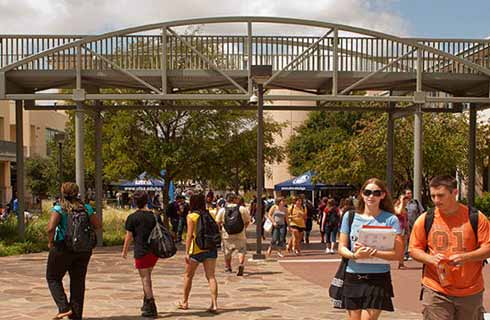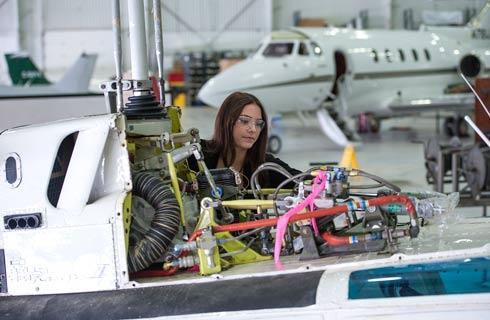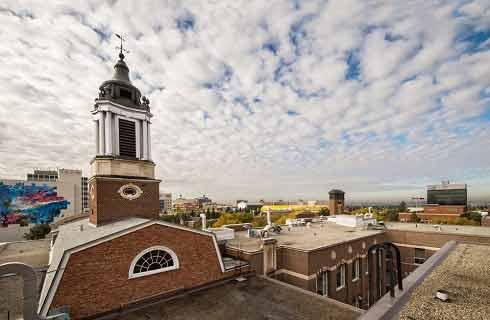社会科学荣誉(荣誉)文学士学位
BA (Hons) Combined Honours in Social Sciences

学历文凭
Bachelor Degree with Honours

专业院系
Interdepartmental

开学时间

课程时长

课程学费

国际学生入学条件
IDP—雅思考试联合主办方

雅思考试总分
6.5
- 雅思总分:6.5
- 托福网考总分:80
- 托福笔试总分:
- 其他语言考试:Pearson Academic PTE - 62 (with no less than 59 in each Communicative Skill) Cambridge C2 Proficiency or C1 Advanced - 176 with a minimum of 169 per component
CRICOS代码: LMV0
申请截止日期: 请与IDP联系 以获取详细信息。
课程简介
Choose from more than 20 subject areas, build a bespoke degree that will broaden your interests and develop your strengths across multiple areas.,If you are curious about the big issues that shape our society, this course may be for you. Taking a research-led approach, Combined Honours in Social Sciences explores systems, institutions, cultures and behaviours that shape the lives of people across the world. A multidisciplinary qualification that sits outside of traditional boundaries, this bespoke, academically ambitious course offers exceptional flexibility. You can choose to focus on two subjects or spread your learning across three or four to suit your individual interests, strengths and career plans. You can also apply to add a placement year or year abroad to your degree, increasing the course from three years to four. Learning from academics working at the forefront of their specialisms, our students graduate feeling confident, intellectually engaged and well prepared for employment or further study. As a graduate you will be well placed to take up a career in fields as diverse as teaching, journalism, social work, in financial services or the charity sector. In the Social Sciences you can choose from: AnthropologyArchaeologyEconomicsEducationGeographyManagementPolitics and International RelationsSociology and CriminologySport Up to half of your modules can be chosen from subjects in the Arts and Humanities (subject to timetable compatibility and entry requirements): Classics and Ancient HistoryEnglish Literature HistoryMusic Philosophy Theology and Religious StudiesVisual ArtsLanguages, currently Arabic, Chinese, French, German, Italian, Japanese, Russian and Spanish The degree culminates in a dissertation on a relevant topic which draws together the skills developed throughout the course.Years 1 and 2 The first two years follow a similar structure. In each year you will study 120 credits, chosen from a minimum of two and a maximum of four subjects. Year 3 (Year 4 if undertaking a placement or year abroad) In your final year, you will complete a dissertation in one of your subjects, alongside your remaining credits from a total of two or three subjects. The availability of modules varies from year to year. Below are examples of the possible areas you may cover within the subject. Social Sciences subjects Anthropology includes cultural anthropology and physical anthropology, and a range of modules concerned with material culture, the physical and social evolution of humans, and topics such as medical anthropology and development anthropology. Archaeology focuses on particular periods and places, including prehistoric archaeology, Roman archaeology, mediaeval and post-mediaeval archaeology, and the archaeology of Britain, Europe, Egypt, India and the Near East, as well as study of the employment of scientific methods in archaeology. Management includes modules in entrepreneurship, management and governance, and some students choose to study additional modules in business management and marketing. Economics includesmicroeconomics, macroeconomics and topics such as the history of economic thought, environmental economics, development economics, monetary economics and the economics of social policy. Education includes central issues in school and higher education involving the study of the historical, philosophical, psychological, sociological and political dimensions of educational theory and practice, and the development of the social sciences in the modern and postmodern periods. Geography includes human geography and a range of modules concerned with geographical theory and methods as well as special topics in urban transformation, environmental change, development, and hazard and risk. Politics and International Relations includes politics in Europe, the USA, the Middle East and the Far East, as well as the history of political thought and international relations.
相关申请
 预科
预科 奖学金
奖学金 实习机会
实习机会 在校学习
在校学习 跨境学习
跨境学习 校园授课-线上开始
校园授课-线上开始 在线/远程学习
在线/远程学习
开学时间&学费
学费信息仅供参考,请与IDP联系以获取详细信息
| 开学时间 | 时长 | 学费 | 地点 |
|---|
学校排名

世界排名114
数据源:
泰晤士高等教育世界大学排名
关于杜伦大学

杜伦大学创建于1832年,是英国历史最悠久的大学之一。杜伦大学建于中世纪世界遗产地旁,有着悠久的历史和现代价值观,是一座备受推崇并拥有前瞻性思维的学府。如今,来自世界各地的18000多名学生在达勒姆就读。杜伦大学有28个系,开设有200多门本科和研究生课程。该校很多教师都处于各自领域的最前沿。教职人员利用出色的研究和学科知识为所有学生提供优质的教学。目前,杜伦大学有17个学科在全球大学中名列前100位,其中九个学科名列前50位。除了在学术上的卓越成就,该校还努力为学生提供支持,帮助他们在毕业后获得有意义的工作。其毕业生就业能力目前在世界上排名第88位。该校的就业与创业中心致力于培养学生的专业技能,并提供商业人脉和工作机会。杜伦大学目前在2020年《QS世界大学排名》中名列第78位,稳稳跻身全球大学百强之列。该校为教职人员和学生创造了一个热情友好的多元化社交环境,并因此而倍感自豪。目前,杜伦大学28%的在校生为非英国本土学生。大学社区处在独一无二的达勒姆求学体验的核心位置,达勒姆的每个社区均是多元化、多学科的社区,由来自不同背景和文化的学者、学生和工作人员组成。有了这些社区,加上该校杰出的支持体系,学生们一定会有宾至如归之感,并可参与大量精彩的课题。
本校相关课程

博士神学与宗教
学历文凭
Ph.D.
开学日期
课程费用总额


MLitt神学与宗教
学历文凭
Masters Degree (Taught)
开学日期
课程费用总额


博士学位论文博士学位
学历文凭
Ph.D.
开学日期
课程费用总额


理学硕士心理学研究
学历文凭
Masters Degree (Research)
开学日期
课程费用总额


研究心理学硕士
学历文凭
Masters Degree (Research)
开学日期
课程费用总额


博士哲学
学历文凭
Ph.D.
开学日期
课程费用总额

其他相关课程

MPhil/PhD History
 兰卡斯特大学
兰卡斯特大学泰晤士高等教育世界大学排名:185
学历文凭
Ph.D.
开学日期
课程费用总额


拥有一年的历史(政治)文学士学位
 斯旺西大学
斯旺西大学泰晤士高等教育世界大学排名:326
学历文凭
Bachelor Degree with Honours
开学日期
课程费用总额


考古学(荣誉)文学士学位
 伦敦大学伯贝克学院
伦敦大学伯贝克学院泰晤士高等教育世界大学排名:303
学历文凭
Bachelor Degree with Honours
开学日期
课程费用总额


艺术和创意产业文凭-人类学和社会学(C1AN)
 科廷大学学院
科廷大学学院学历文凭
Diploma
开学日期
课程费用总额


BA History and Politics
伦敦大学亚非学院
泰晤士高等教育世界大学排名:455
学历文凭
Bachelor Degree
开学日期
课程费用总额


哲学博士(社会科学与公共政策)
 奥克兰理工大学
奥克兰理工大学泰晤士高等教育世界大学排名:506
学历文凭
Ph.D.
开学日期
课程费用总额










